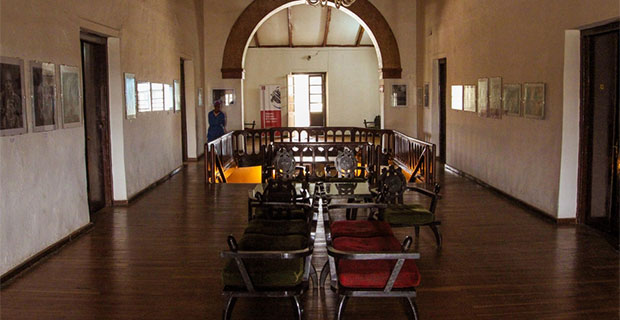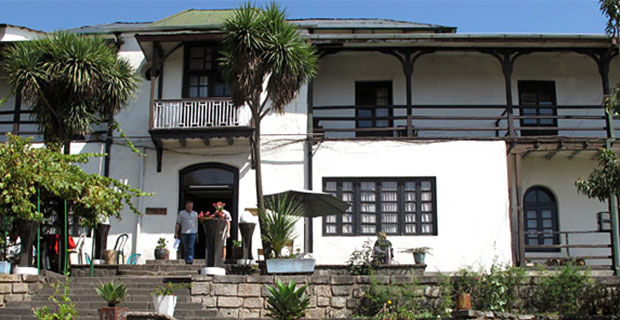
The government has produce various bureaucracies and invests public money each year to boost the tourism industry. But a far greater strategy will be if bottom-up approaches are used to handle glaring annoyances, writes AMBESSAW ASSEGUED(assegued@anfilo.com).
The existentialist who subscribes to no cause or does not have any belief in virtually any human construct and surrenders to the natural laws that govern our universe is really a rare species in Ethiopia. It appears to be our fate to fret and be worried about everything forever, small and big, even over things where we can not have the minutest influence possibly, with regards to our country particularly.
“I attribute my present sense of peace and harmony to my belief that the gods have finally heard my prayer,” says a guy to his friend in a heated dinner conversation on current political affairs. “I used to state, ‘Please gods, find someone apart from me to be worried about Ethiopia.’ Look what happened! The gods have discovered Abiy to achieve that for me personally.”

The new crew of ministers and government officials, probably the most jaded included in this even, at night attempting to deal with all of the issues that face Ethiopia must keep awake.
Sometimes, big national problems could be solved with simple solutions that want no appointment of lofty sounding boards, committees or commissions. If major problems could be encapsulated into small areas like, for example, privatised historical property like Taitu Hotel in Piassa, which is often used as a springboard to formulate solutions for a few of our problems.
Many tourists arrived at the hotel, since it is cheap and because of its convenient location mostly. Perhaps, several may choose this grand and venerable hotelier because of its past link with Evelyn Waugh’s satirical novel, Scoop.
The hotel comes with an even loftier history, however, compared to the accounts of a short stay of the eccentric adventures of a conceited war correspondent. Waugh bases the story of Scoop on enough time when he found himself housed there with a motley assortment of newspaper men at the start of hostilities through the second Ethio-Italian in 1935.
There can be the splendid legend of Menelik II who takes frequent trips round the city to inspect the construction of roads and bridges in the brand new city. On his return trips to his palace, the emperor is intercepted by way of a budding population of Greek and Armenian merchants and confectioners who press upon him to partake and become entertained with European sweets, delicacies and wine.
To the annoyance of Empress Taitu, his consort, the imperial entourage will minimize to be entertained and become delayed to the geber frequently, the mid-day feast waiting at the palace. The legend is that she commissions and builds the hotel as a stopover for Menilik on these expeditions also to keep a detailed eye on her behalf husband’s escapades.
With this and several other rich stories, exquisite architectural features, open landscape, sweeping views of the administrative centre, shaded verandas, brightly-lit rooms, bay windows that available to gardens, crafted woodwork superbly, laid stone masonry sufficient reason for its airy ceilings splendidly, Taitu Hotel ought to be a top-tier venue for well-heeled travelers.
Instead, it suits the tourist crowd that may endure broken fixtures, splintered floors and ill-kept bathrooms. Why don’t we not mention the hotel grounds that house a clatter of haphazardly placed containers and offices rented out to tour operators, and film and newspaper producers.
The story of Taitu Hotel could easily encapsulate the existing situation of Ethiopia as a tourist destination. Endowed with untold cultural and natural treasures, we stagger confused around, looking for a real solution to create a viable tourist industry. This, regardless of the known proven fact that the country is, among a great many other attributes, the land of origins. Which claim isn’t vanity.
The proven fact that rich cultural and historical heritages are neglected, and the infrastructure had a need to develop the has collapsed isn’t much argued. Also, there is absolutely no argument that the national country is endowed having an enviable trove of tourism resources.
Ethiopia may be the origin of Arabica coffee and the only real place on the earth where coffee grows naturally in the open; it really is home to a huge selection of endemic fauna and flora; and a accepted place where unique habitats of highland moors and Afro-alpine rainforests are supported.
It is really a country in which a many streams, creeks, rivers and lakes grace its natural landscapes; a accepted place where a lot of the oldest Christian, Islamic and indigenous practices flourish still; multitudes of cultures and languages have evolved; a refined national cuisine with extraordinary taste, smell, texture and colour has enriched the entire lives of its citizens; and cultivated seed types of wheat, beans, peas and teffhave developed making Ethiopia a genuine seed-bank.
Despite each one of these apparent advantages, a remedy to create a transformation of the tourist industry has eluded us about. The federal government stumbles to get solutions by granting the development of hotels through tax incentives and duty-free privileges with little success.
Its other solutions have already been to erect bureaucracies as though that alone can do the trick. On the federal level may be the Ministry of Tourism & there; Tourism and culture Ethiopia; the National Tourism Board; Tourism Ethiopia; Hotel & Tourism Works Training Center; and, needless to say, each regional state has its bureaucracy, as do all of the populous city administrations round the country. There is absolutely no reason or rhyme to the management of the tourism industry in Ethiopia.
Simple solutions that may produce transformation are seldom considered. In the entire case of Taitu Hotel, transformation of the house may take place with reasonable investment manufactured in upgrading the plumbing, electricity, fixtures and finishes of the hotel.
The landscape may also be repaired with reduced effort, developing a world-class garden that may create a secured asset for the populous city; and implementing a rigid and thorough cleaning and maintenance routines will enhance the property and drive well-to-do tourists to the hotel.
If a little privatized hotel property like Taitu is challenged to emerge from the doldrums of days gone by century, when Waugh wandered its corridors, we should wonder what the fate of the planned privatization of government enterprises will be. Why don’t we be careful as we opt for these grandiose plans for the public institutions and country ahead. It really is hoped our leaders shall thrive to get simple answers to our big national problems.